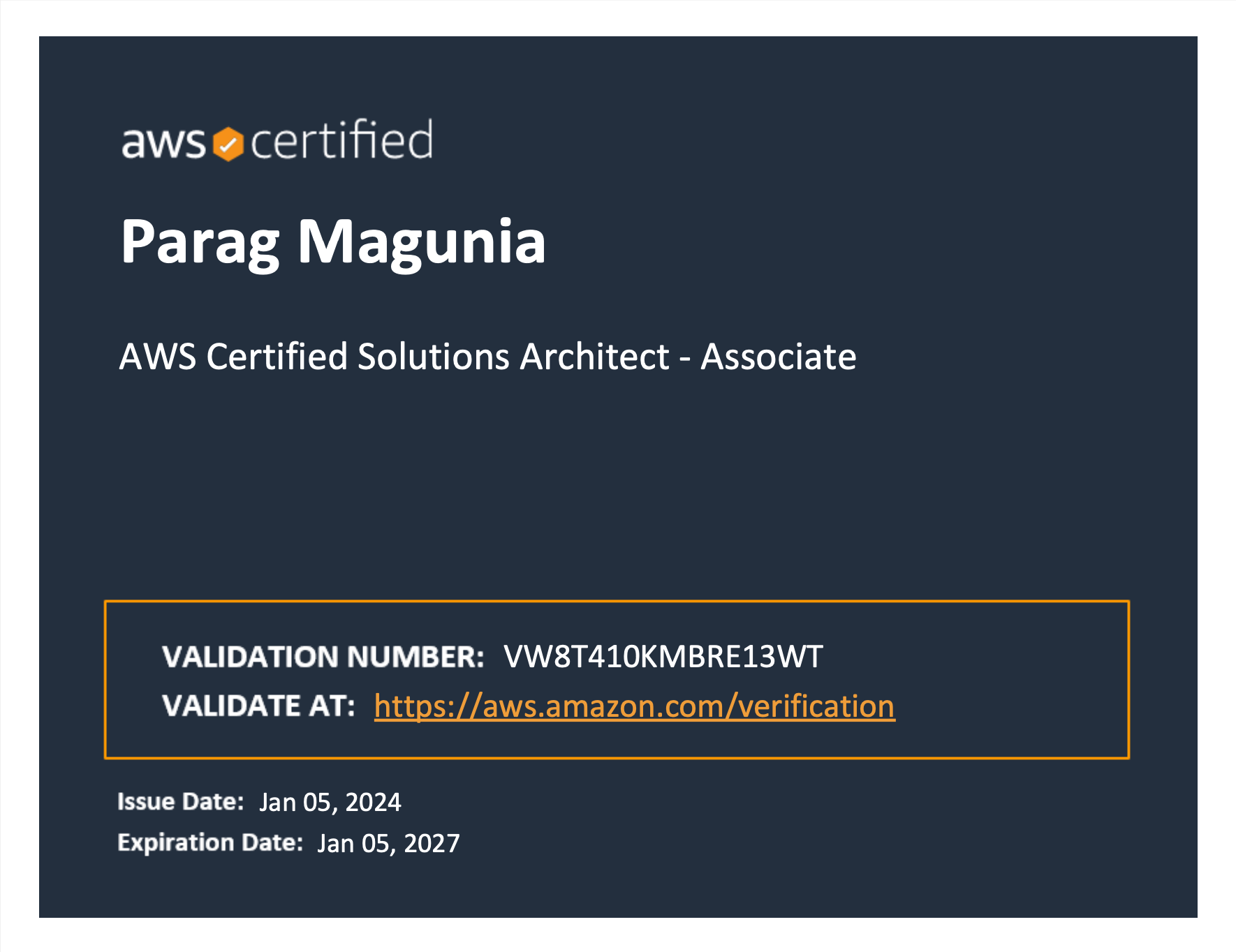Passed SAA-C03 and What Helped Me the Most
January 5, 2024
Today, I passed the SAA-C03 Solutions Architect exam. It has changed a lot from SAA-C02. There is a new section on Data Lakes and more percentage of questions devoted to building secure applications. The first time I took the new C03 exam I failed, and I was very disappointed as I was expecting to pass since I already had an expired C02 credential. What helped me the most this time was the Coursera AWS Solutions Architect specialization, the AWS FAQs and hands-on experience. I’ve created a hand-selected list of links to the FAQs in my Github gist which is a bookmarks HTML file that can be safely imported into Chrome and other browsers.

In the bookmarks file there are a total of about 50 FAQs out of the 200 total AWS Services. The ones I found most important I starred. Minor ones like AWS Neptune you should only know the main points: It useful for creating graphs of objects like Facebook friends lists and LinkedIn Connections. An entire question may not be devoted to it but it may appear as a multiple choice answer along with other services. Just knowing the service’s reason for existence will help you either to narrow down your choices or selecting the correct answer.
Then, there are major services like EC2, RDS, and VPC that appear multiple times on the exam both as the question and multiple choice answers. For these you should read the FAQs in detail and try to get hands-on experience if possible.
Hands-on experience may not always be feasible. For example, you don’t want to request a Snowmobile to transfer data as it may cost thousands of dollars and max out your credit card. That’s one thing I’m not too fond about. There’s no way to limit spending. You can get spending alerts with Cloudwatch, but that’s about it, and AWS does not take gift Visa or Mastercard credit cards.
Another thing to keep in mind is that I feel like AWS is doing some marketing when they choose questions for the exam. For example, DynamoDB questions appear multiple times even though it is not that popular of a service, in my opinion. I’m guessing Amazon wants people to use it even though’s it real popularity may not live up to the hype. They did that with Athena and AWS Aurora in C02. AWS thinks they’re great, and they want you to use them so they devote exam questions to them. Don’t get me wrong, all these are great services but I just feel fewer questions should be devoted to them.
The Coursera Specialization helped a lot. Even though I feel like the questions that appear in the courses are not same level of difficulty or quality as the real exam, they do cover all the microservices you need to know. That’s where I got a lot of the FAQs in my bookmarks gist. The videos can be entertaining, and I feel like alot of effort was put into making them. If you’re not familiar with data lakes, the Coursera Specialization has an entire 4 week course devoted it. The grading of the Coursera courses can be spotty as you are relying on fellow students to evaluate and grade your work. For basic courses, there is little to no instructor access in Coursera and the AWS Specialization is no exception. On a side note, some of the degree coursework does allow you to interact with real professors and teaching assistants.
AWS has a number of outstanding services. AWS has been named the market leader and most visionary among other companies like Google Cloud and Microsoft’s Azure Platform in the Gartner magic quadrant ratings. I haven’t explored Google Cloud or Azure as much as I should, but I’ve been happy with AWS. Getting AWS certified will definitely help your career though the Cloud Practioner certification may not carry too much weight compared to the others (I’m still planning to take the Cloud Practioner exam but I feel as a developer, the other associate and professional exams are more time worthy.) The Cloud Practioner exam is more for non-technical people. Overall, passing the SAA-C03 will be worth the effort. I definitely feel like there is more job security for people who have passed one or more of these exams.

